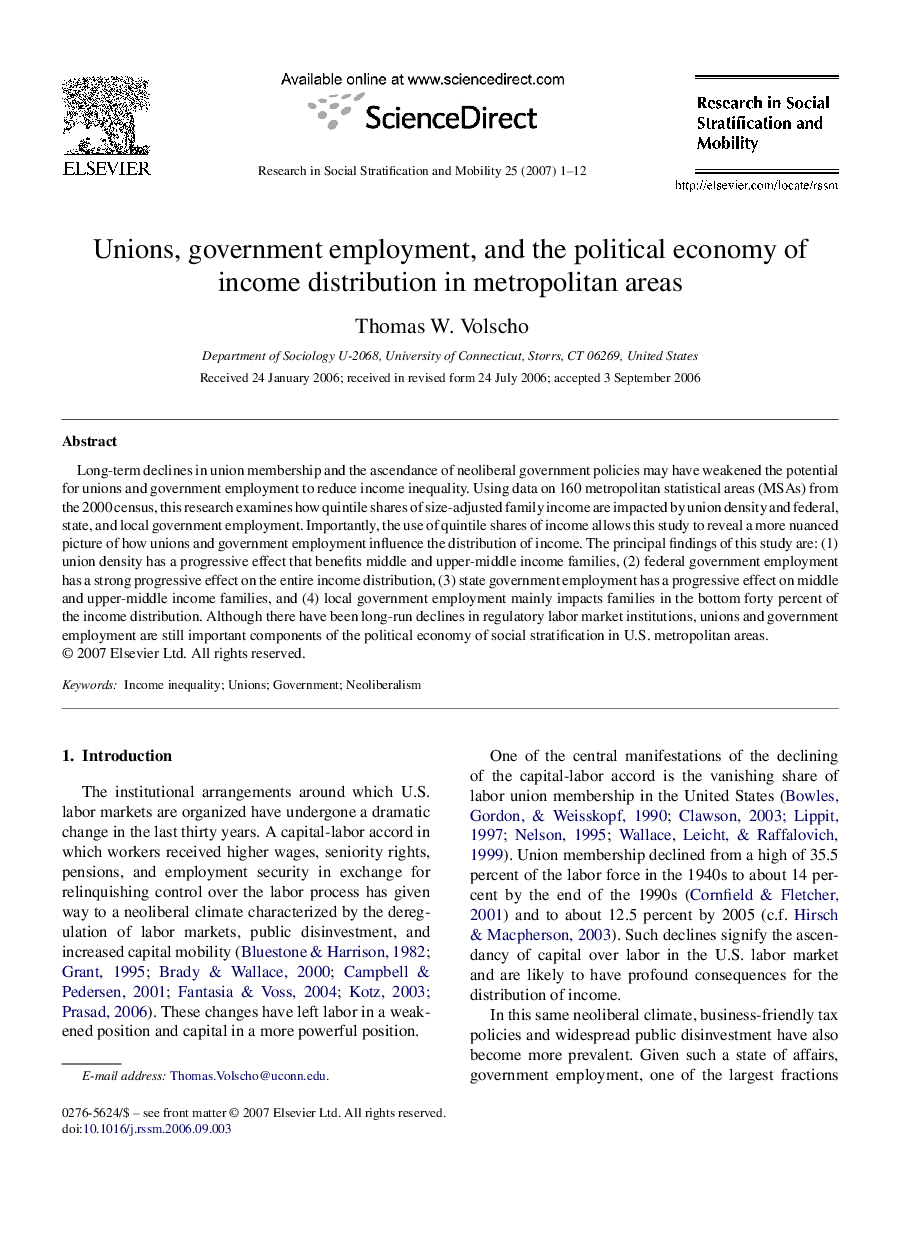| Article ID | Journal | Published Year | Pages | File Type |
|---|---|---|---|---|
| 999736 | Research in Social Stratification and Mobility | 2007 | 12 Pages |
Abstract
Long-term declines in union membership and the ascendance of neoliberal government policies may have weakened the potential for unions and government employment to reduce income inequality. Using data on 160 metropolitan statistical areas (MSAs) from the 2000 census, this research examines how quintile shares of size-adjusted family income are impacted by union density and federal, state, and local government employment. Importantly, the use of quintile shares of income allows this study to reveal a more nuanced picture of how unions and government employment influence the distribution of income. The principal findings of this study are: (1) union density has a progressive effect that benefits middle and upper-middle income families, (2) federal government employment has a strong progressive effect on the entire income distribution, (3) state government employment has a progressive effect on middle and upper-middle income families, and (4) local government employment mainly impacts families in the bottom forty percent of the income distribution. Although there have been long-run declines in regulatory labor market institutions, unions and government employment are still important components of the political economy of social stratification in U.S. metropolitan areas.
Related Topics
Social Sciences and Humanities
Economics, Econometrics and Finance
Economics, Econometrics and Finance (General)
Authors
Thomas W. Volscho,
